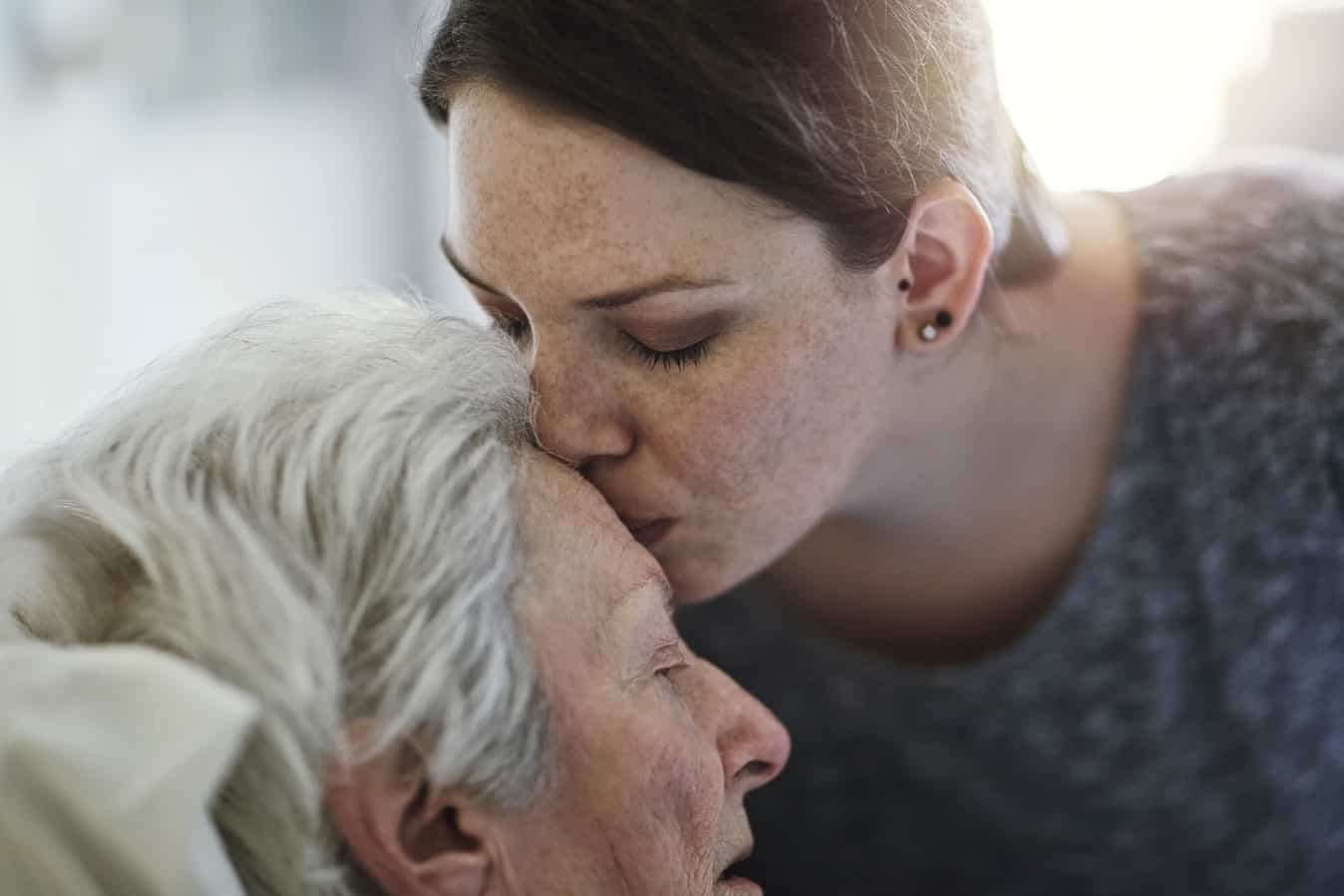Quality end–of–life care (EOLC) and decision making has been prominent in the literature over recent years with EOLC having a significant bearing on the process of dying and effect upon family and significant others during this time (Raijmakers, 2013, Caswell et al. 2015).
The call has been to move beyond a ‘death denying culture’ but rather to a more open communication by people and health professionals (Whiting, 2016). Undeniably grief and bereavement counselling prior to and at EOL helps to prepare patients for a good death and can benefit patient, family and care-givers before and after the death of their loved one (Sealey et al. 2015). Dying is inevitable.
Every human understands the cycle of life and death and most people have considered their own death and their hopes and plans for a good death and EOLC care. Nowadays, discussion with friends and relatives and the treating doctor perhaps concerning organ donation and EOLC may have also occurred (Stoebe and Boerner 2015).
Yet a recent study titled, Factors influencing medical decision-making for seriously ill patients in the acute care hospital has shown that health professionals involved in EOLC remain reluctant to talk about palliation and persist in pursuing curative care to circumvent the difficult discussions to prepare patients, family and significant others to accept terminal care (Hendricks et al. 2017).
Truthfully, many patients and families do not want to have the ‘death and dying’ conversation or feel ill-equipped to involve themselves in those discussions, however, what remains shocking is that health professionals are unwilling to involve themselves in discussions concerning medical decision making and death and dying with patients and indeed nurse researchers (Hendricks et al. 2017).
While some patients may elect for interventions aimed at prolonging life, contemporary research has indicated that the most central consideration in EOLC is keeping the patient comfortable via pain and symptom management. The least important consideration is the comfort of health professionals and caregivers and the futile delaying of an inevitable death (Raijmakers 2013).
It is true that communication of bad news is difficult and debate on how and what to say to all involved continues to be an issue for health professionals (Bélanger et al. 2014). Further, some people do not wish to discuss death and prefer to believe that they will not die. Others plead to be told the truth whilst they can ‘get their affairs in order’ and to plan for death. The conduit for these difficult conversations is Advance Care Planning (ACP). People with plans in place are more likely to receive the EOLC they wish for and the family members and friends concerned experience less stress, anxiety and depression (Detering et al. 2010).
In addition, Bernacki and Block (2014) and Sealey et al. (2015) suggest a checklist for difficult conversations to aid health professionals, offering a guide for discussion and documentation regarding EOLC to reduce the likelihood of missed needs.
The call for more patient-centred care surely includes care at time of approaching death and dying. The continued reluctance of health professionals to engage in those conversations with not only their patients but with researchers raises alarm. Transparent discussions for a dignified death and justifiable medical decision-making at EOLC would provide better quality care of our patients.
References
- Bélanger, E., Rodríguez, C., Groleau, D, Légaré, F., Macdonald, M., & Marchand, R. 2014. Initiating decisionmaking conversations in palliative care: an ethnographic discourse analysis. BMC Palliative Care, 13(1).
- Bernacki, R. & Block, S. 2014. Communication about serious illness care goals. JAMA Internal Medicine, 174 (12): 1994.
- Caswell, G., Pollock, K., Harwood, R., & Porock, D. 2015. Communication between family carers and health professionals about end-of-life care for older people in the acute hospital setting: a qualitative study. BMC Palliative Care 14 (35).
- Detering, K., Hancock, A., Reade, M., & Silvester, W. 2010. The impact of advance care planning on end of life care in elderly patients: randomised controlled trial. BMI, 340 (mar23 1), c1345-c1345.
- Hendricks, J., Cope, V., & Sundin, D. 2017. Factors influencing medical decisionmaking for seriously ill patients in the acute care hospital. 5th Annual Worldwide Nursing Conference (WNC 2017): 279-285.
- Raijmakers, N. 2013. End of life care and decision making. Erasmus University Rotterdam.
- Sealey, M., O’Connor, M., Aoun, S.M., & Bree, L.J. 2015. Exploring barriers to assessment of bereavement risk in palliative care: perspectives of key stakeholders, BMC Palliative Care, 14 (49): 1-15.
- Whiting, N. 2016. Physicians: Australians need to discuss their own deaths more. www.abc.net.au/worldtoday/content/2016/s4463790.htm
Vicki Cope is Associate Professor Nursing, Academic Chair in the School of Health Professions at Murdoch University in Western Australia








